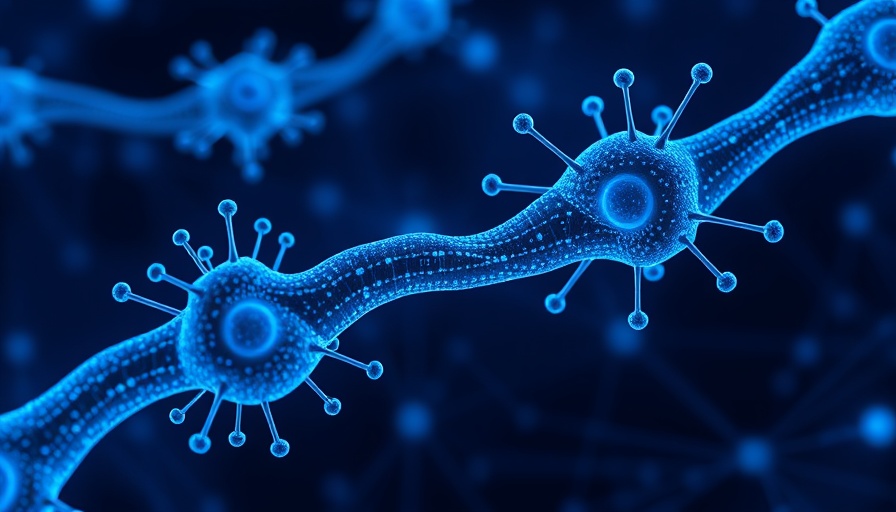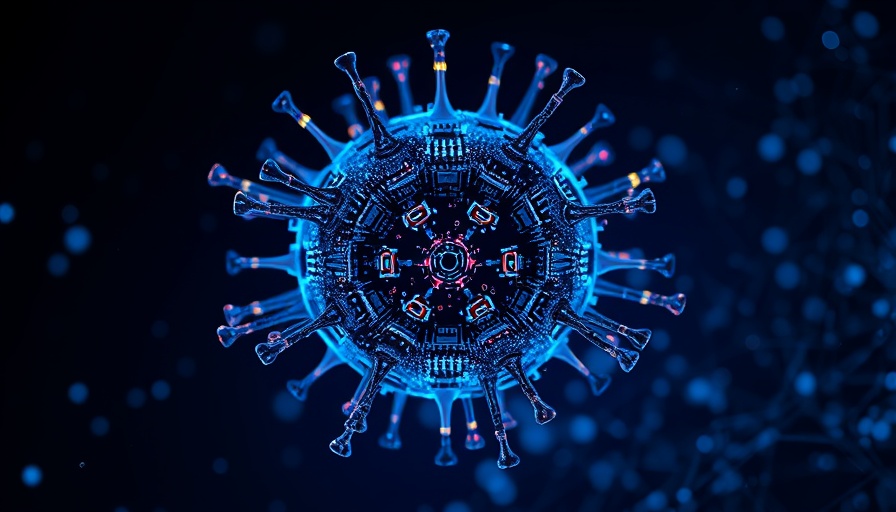
The Revolutionary Role of AI in Protein Building
In a stunning advancement, researchers have developed artificial intelligence systems capable of constructing proteins in seconds — a feat that previously took scientists months or even years. This capability positions AI at the forefront of biotechnology, with significant implications for tackling pressing health challenges such as cancer and antibiotic resistance. Unlike traditional methods, which often rely on trial and error, AI systems can predict protein structures based on vast data sets, dramatically accelerating the research and development processes.
Addressing Antibiotic Resistance through Innovation
Antibiotic resistance has become a major public health issue worldwide, prompting the urgent need for novel solutions. AI-generated proteins could lead to breakthroughs in creating new antibiotics or enhancing existing ones. By rapidly designing unique proteins that interact effectively with bacteria, researchers can explore innovative treatments that were previously unimaginable. This is particularly crucial, as many infections become harder to treat due to the rise of resistant strains.
Applications in Cancer Treatment
AI's ability to create tailored proteins also opens new avenues for cancer treatment. Custom-designed proteins could be developed to target specific cancer cells, potentially offering therapies that are more effective and less harmful than traditional treatments. The precision of AI in protein design allows for the adaptation of therapies to individual patient needs, fundamentally shifting the paradigm in oncology.
Business Implications for Tech-Driven Industries
For business professionals, particularly those operating in tech and marketing sectors, the rapid advancement of AI in protein building presents significant opportunities. Companies could harness these innovations for market competitiveness, exploring biopharmaceutical products or sophisticated wellness solutions. Understanding the technological landscape shaped by AI can position businesses to leverage emerging healthcare technologies for strategic growth.
Future Predictions: A New Era of Healthcare
As we look to the future, the intersection of artificial intelligence and biotechnology will most likely yield transformative changes in healthcare. In the coming years, we may witness the standardization of AI in laboratories, driving not only faster developments but also more sustainable approaches to drug discovery. This shift could lead to cost reductions in healthcare, making advanced treatments accessible to a broader population.
Challenges and Ethical Considerations
However, alongside these advancements come ethical considerations that industry leaders must address. The rapid adoption of AI in protein engineering raises questions about the ownership of intellectual property, the potential misuse of technologies, and the societal impacts of new treatments. It is essential for stakeholders to engage in an ongoing dialogue about these issues to navigate the complexities of innovation responsibly.
Decisions Businesses Can Make Today
For CEOs and marketing managers, understanding the advancements in AI and biotechnology could inform crucial business strategies. Investing in companies focused on health-tech or biopharma could provide lucrative opportunities. Additionally, implementing AI solutions in operational processes could enhance efficiency and foster innovation within organizations.
Final Thoughts: Embracing the AI Revolution in Healthcare
The promise of AI in protein building revolutionizes how we approach health challenges, ultimately impacting the lives of millions. For industry professionals, embracing these changes is not just an opportunity but a necessity in a rapidly evolving technological landscape. As the AI revolution gains momentum, the time to explore its potential in transforming healthcare is now.
 Add Row
Add Row  Add
Add 




 Add Row
Add Row  Add
Add 

Write A Comment